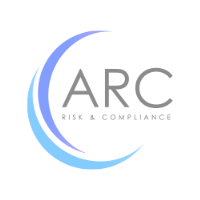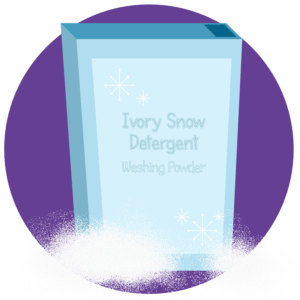Background
If you have been in banking before 2001, you know that BSA compliance was much simpler and not as burdensome as it is today. When it comes to the “Bank Secrecy Act”, it is important to remember there isn’t just one law called the “Bank Secrecy Act”. It is made up of numerous laws including, but not limited to, The Foreign Bank Secrecy Act of 1970 that gave us CTRs, the Money Laundering Control Act and The Anti-Drug Abuse Act in 1986, and the Annunzio-Wylie Anti-Money Laundering Act of 1992 that required SAR filings.
However, in 2001, everything drastically changed with the attack on 9/11. Soon after 9/11, the USA Patriot Act (Uniting and Strengthening America by Providing Appropriate Tools Required to Intercept and Obstruct Terrorism) was passed. The regulatory requirements increased significantly as behavior from the 9/11 terrorists’ activity was scrutinized. The terrorists all listed their occupation as students, worked predominately through wires and ATM transactions so their face would not be seen in financial institutions, and used expired drivers’ licenses. With the passage of the USA Patriot Act two new provisions provided for more effective communication between financial institutions and law enforcement.
The first provision was 314(a) which enables federal, state, local, and foreign (European Union) law enforcement agencies, through FinCEN, to reach out to more than 34,000 points of contact at more than 14,000 financial institutions to locate accounts and transactions of persons that may be involved in terrorism or money laundering. Financial institutions must search their records and report back to FinCEN any matches they find. The 314(a) list from FinCEN comes out every two weeks. It is a one-time inquiry and law enforcement only need to “reasonably suspect” and have credible evidence that the subject may be engaging in terrorist or money laundering activity to be included on the list. Institutions should not consider these subjects as on a permanent “watch list” or automatically file a SAR. A SAR should only be filed if the institution has detected suspicious activity occurring in or through their institution.
The second provision was 314(b) which provides financial institutions with the ability to share information with one another, under a safe harbor that offers protections from liability, in order to better identify and report activities that may involve money laundering or terrorist activities. Participation in information sharing pursuant to Section 314(b) is voluntary, and FinCEN strongly encourages financial institutions to participate.
So Why Bother With 314(b)?
With thousands of individuals and businesses as customers or members in your financial institution, how can you effectively identify illicit actors. The answers to that question could involve software, negative news search, social media investigations, and other methods of enhanced due diligence. If you have all the accounts of illicit actors, you would have a complete picture of their activity. However, if an illicit actor has even a little common sense (and we know for a fact some don’t), he/she will not just establish accounts at just one financial institution. The more shrewdness illicit actors have, the more financial institutions they will utilize to perpetrate their illegal activity. Therefore, financial crime fighters need to think like criminals and see the value in working with numerous financial institutions. This is accomplished by participating in the 314(b) process.
314(b) enables financial institutions to gather additional information on customers or members potentially related to money laundering or terrorist financing that may have been pervious unknown to them. This would include additional accounts, activities and/or associated entities or individuals. It also shed light on financial trails through various financial institutions, entities and jurisdictions. This enables investigators to build a more comprehensive and accurate picture of customers’ or members’ transactional activity to accurately determine if something is truly suspicious. It also enables investigators to send a more complete picture to law enforcement via the SARs they file. Finally, it increases the knowledge of investigators by shedding light on the various methods utilized by criminals.
Another reason to participate is that it is relatively easy to do so. An institution must register to participate, choose a designated contact, and begin sharing. Now granted, not every institution with whom you wish to participate will respond in a timely fashion or respond at all. Please don’t let that deter you from contacting other financial institutions that are very willing to share information.
Reminders
Remember, you do have a safe harbor created by Section 314(b) that protects you when you share any information that relating to activities that an FI suspects may involve possible terrorist financing and/or money laundering. You don’t have to prove money laundering or terrorist financing to participate in sharing.
This sharing could occur when the financial institution is sharing information about specific transactions involving the proceeds of one or more specified unlawful activities (‘SUAs’) which include an array of fraudulent and other criminal activities, including fraud against individuals, organizations, or governments, computer fraud and abuse, and other crimes.
Financial institutions may share activities related to possible money laundering or terrorist financing even if the activity doesn’t constitute a “transaction.” For example, you may share on attempts to engage in transactions or attempts to engage others in transactions. See FinCEN’s guidance on this here.
Conclusion
Without 314(b) you only have a partial picture of a customer or member’s activity and cannot accurately determine if it is or is not suspicious. You also don’t know the full scope of activity and cannot file complete SARs. Remember, it is through partnerships with other financial institutions and law enforcement that we all become more effective in fighting financial crime and protecting innocent people from harm. Some of those people may even be your own family members or friends, so please join the rest of us participating in 314(b)! Here is institutional information on those participating and for your institution to begin participating, you can register here.








